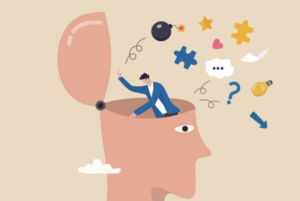“The illiterate of the 21st century will not be those who cannot read and write, but those who cannot learn, unlearn, and relearn.” – A. Toffler
I remember my father once telling me, “Knowing what something is, is also knowing what it’s not.” The phrase stuck with me, and I was reminded of it the other day when reading an article examining the importance of learning as a contributing factor to healthy aging. Yes, I read lots of things about aging, not just because I’m a senior citizen, but to better understand the process. Simply defined, aging is the process of becoming older. Unfortunately in a world driven by the never-ending quest to look, feel and act young, becoming older has a negative connotation and is often perceived as the beginning of the end; a misnomer at best.
As we age, our bodies and minds undergo changes that can affect our physical and mental health. However, a two-fold fountain of youth, so to speak, exists. First, healthy aging is promoted by learning new skills and acquiring knowledge; activities that serve to stimulate the brain, improve cognitive function, and reduce the risk of age-related diseases. Secondly and equally important is our ability to unlearn. Healthy aging is also promoted through the elimination of old habits, beliefs, and assumptions that can compromise our continued growth and development. One could say that learning to unlearn is a critical skill for healthy aging.
Unlearning is not about forgetting. In its simplest form it’s a process of letting go. It’s casting off old habits, outdated information, ideas and or behaviors that are no longer useful or serve a purpose. It’s about the ability to choose an alternative mental model or paradigm. It’s a recognition that the systems we have deeply relied on for years are now evolving at a dizzying pace. Without question, keeping up with them is a challenge, but refusing to accept and/or address this change can threaten our growth and even compromise life expectancy.
The process of unlearning is also uncomfortable. It is certainly difficult to let go of the behaviors, mindsets, and practices that have governed our lives for long periods of time; many of which have enabled us to live productive, healthy lives. However, if we want to survive and thrive in the present and prepare for the future, there is no alternative but to accept and adapt to the changes that are occurring around us. Failing to do so can lead to stagnancy, and we all know where that leads. Hence, it is up to us to take responsibility and learn to unlearn.
Unlearning isn’t like learning. It ‘s not additive—adding new knowledge or habits to your existing inventory. It’s subtractive. It’s stopping certain behavior(s), questioning certain assumptions or expectations, or decommissioning a habit. That is, we are no longer doing business as usual. Unlearning is challenging, but not impossible. Here are a few suggestions to get you started:
-
Identify: Reflect on beliefs, habits, and assumptions that are limiting your growth. Ask yourself questions like “What are the things that are holding me back?” or “What do I need to let go of to move forward?”
-
Challenge Yourself: Consider assumptions, beliefs and practices that have driven your behavior. Ask yourself if they still serve you today or have they served their purpose. Try to look at things from a different perspective and consider alternative viewpoints.
-
Get Outside Your Box: Your social groups, social media, go-to books and theories are likely to reinforce what you already think. Actively seek other voices, other ideas, other sources and circles.
-
Practice Self-awareness: Pay attention to your thoughts and actions, and be mindful of when you’re falling back into old habits. When you notice this happening, pause and reflect on what triggered it and how you can respond differently.
-
Begin to Relearn: Finally, take action to put your new knowledge and insights into practice. Start small and work your way up, and be patient with yourself as you navigate the process of unlearning and relearning.
While we cannot be absolutely certain of what the future holds, it becomes evident that the processes and systems that brought us here are unlikely to sustain us beyond today. Learning to unlearn and then relearn is our best course of action. Next week I will be picking up my granddaughter at the end of the school day, and I will ask her, “Grace, what did you learn in school today?” After she shares her day I wonder if she will smile, look back and say, “Hey Grandpa, what did you unlearn today?”
Embrace the Challenge.

